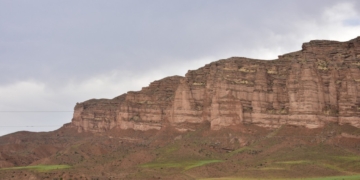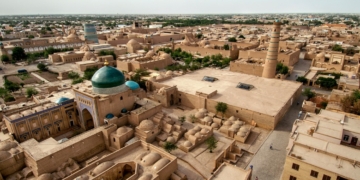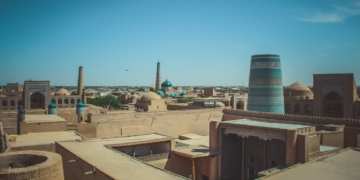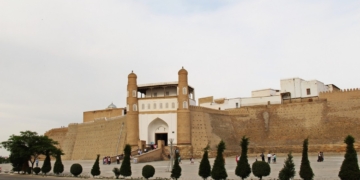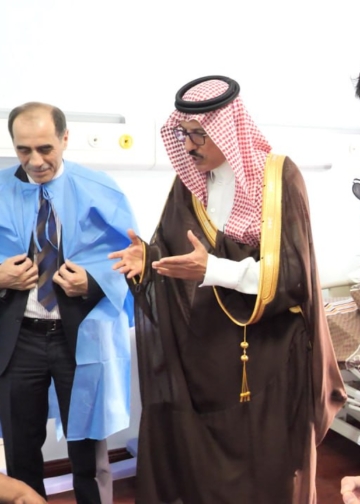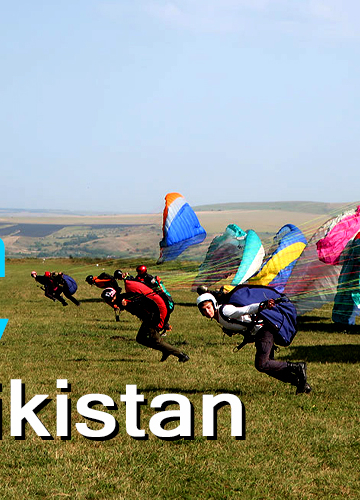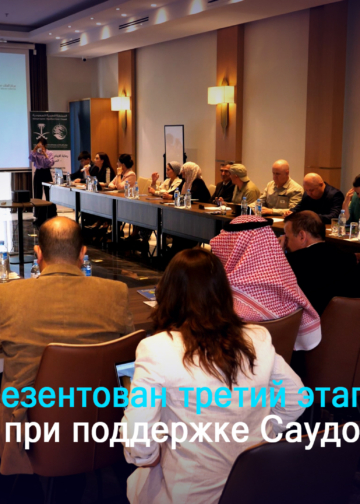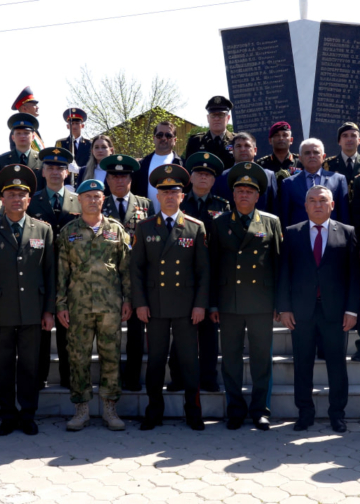id: 59728
date: 4/7/2006 10:49
refid: 06DUSHANBE620
origin: Embassy Dushanbe
classification: UNCLASSIFIED
destination: 06DUSHANBE283
header:
VZCZCXRO5603
PP RUEHLN RUEHVK RUEHYG
DE RUEHDBU #0620/01 0971049
ZNR UUUUU ZZH
P 071049Z APR 06
FM AMEMBASSY DUSHANBE
TO RUEHC/SECSTATE WASHDC PRIORITY 7133
INFO RUEHDBU/AMEMBASSY DUSHANBE 8313
RUCNCIS/CIS COLLECTIVE
RUEHBUL/AMEMBASSY KABUL PRIORITY 1433
RUEHAK/AMEMBASSY ANKARA PRIORITY 1507
RUEHBS/USEU BRUSSELS PRIORITY 0862
RUEHVEN/USMISSION USOSCE PRIORITY 1550
RHEHAAA/NATIONAL SECURITY COUNCIL WASHINGTON DC
RUEAIIA/CIA WASHDC
RHEFDIA/DIA WASHINGTON DC
—————— header ends —————-
UNCLAS SECTION 01 OF 02 DUSHANBE 000620
SIPDIS
SIPDIS
FOR DRL ASSISTANT SECRETARY LOWENKRON FROM AMBASSADOR HOAGLAND
STATE ALSO FOR P, S/P, SCA/CEN, EUR/ACE
E.O. 12958: N/A
TAGS: PGOV, PREL, PHUM, EAID, KDEM, TI
SUBJECT: TAJIKISTAN’S PRESIDENTIAL ELECTION: AN OPPORTUNITY FOR
TRANSFORMATIONAL DIPLOMACY
REF: DUSHANBE 0283
DUSHANBE 00000620 001.2 OF 002
1. (U) Sensitive but
unclassified. Please handle accordingly.
Not for public Internet.
2. (U) Dear Assistant Secretary
Lowenkron: I would like to
solicit your help in advancing democracy in Tajikistan. See
request in para eight.
3. (U) Tajikistan’s next
presidential election will be in
November 2006. At Embassy
Dushanbe, the Political and Public
Affairs Sections and USAID have developed a joint election
strategy (septel), «Reform from Above, Foster Interest Below.»
Both parts are essential — the «above,» and the
«below.» This
message focuses on one key element of the «above.»
4. (U) Tajikistan’s 2005
parliamentary election was a step
forward but did not meet international standards. Even though
the election was reasonably well conducted and the Tajik voters
took their civic duties quite seriously, even in the most remote
parts of the country, the OSCE/ODHIR Election Observers
Mission’s final report enumerated many flaws which, in the
aggregate, prevented the election from meeting international
standards.
5. (SBU) However, we know Tajik
officials of good will, at high
levels, who want to improve the next election. Although they do
not control the political environment facing any opposition
candidate, they are in a position to make significant
improvements to the electoral process, thus laying an important
foundation for future elections.
To that end, the International
Foundation for Election Systems (IFES) in Dushanbe has already
been working intensively with the Central Commission for
Elections and Referenda (CCER) and the President’s Strategic
Research Center (SRC) to identify what needs to be improved and
to achieve agreement from the government to make these
improvements.
6. (SBU) The government has
already agreed in principle to
employ finger-inking to reduce the chances for multiple voting,
and — even more surprising — has agreed in principle to issue an
edict allowing non-partisan Tajik election observers (i.e.,
members of NGOs and civic organizations), even though the
current Presidential Election Law makes no provision for such
observers.
7. (SBU) Starting with the flaws
listed in the 2005 OSCE/ODHIR
report, and using three key documents that set forth
expectations — the OSCE Copenhagen document, the CIS Convention
on Free and Democratic Elections, and the Election Law of the
Republic of Tajikistan — IFES, CCER, and SRC working together
have identified the following areas that are of concern and have
pledged to find solutions for each:
Proxy voting, family voting, multiple voting
Counting of ballots and adhering to protocol procedures
Interference by local officials and presence of uniformed police
officials
Low female and ethnic minority participation
Interference in the registration of candidates
Delaying or denying accreditation of observers
Voter registration
Use of pencils rather than pens for protocol reports
Paucity of CCER public meetings before the election
Manipulation and misuse of the mass media
Early voting, mobile voting, and absentee voting
Low level of civic education
Complaints and appeals processes
8. (SBU) IFES Washington will
submit a proposal to the
DUSHANBE 00000620 002.2 OF 002
Department within the next two weeks to allow IFES Tajikistan to
continue this vital work. IFES
Tajikistan’s existing USAID
grant expires in September.
[NOTE: This could not be an
extension of IFES’ current USAID grant which is for civic
education but not/not elections.
END NOTE.] Unless it receives
new funding for this election work, IFES will go into close-out
mode in June. We recognize that
budgets are especially tight,
but we would ask that DRL, or some other element, fund this
proposal as soon as it is received.
Without IFES’ continued
engagement, this effort will fall by the wayside. The key
players who will set the tone and standards for the election are
on board for the moment, and we must cement their commitment to
a better electoral process.
Working from the top down, we have
a chance to make a real difference.
9. (SBU) Politics is a dirty
business anywhere in the world,
and especially dirty in CIS states.
We have no illusion about
the November 2006 presidential election.
The result is a
foregone conclusion. But we
firmly believe by working closely
with the CCER and the influential SRC (which is increasingly
pro-reform) we have the opportunity to correct past electoral
problems and to establish as precedents practices that will
prove invaluable as democracy evolves in Tajikistan.
HOAGLAND
=======================CABLE ENDS============================
id: 59937
date: 4/10/2006 9:36
refid: 06DUSHANBE626
origin: Embassy Dushanbe
classification: UNCLASSIFIED//FOR OFFICIAL USE ONLY
destination: 05DUSHANBE1845|06DUSHANBE576|06DUSHANBE616
header:
VZCZCXRO7597
RR RUEHLN RUEHVK RUEHYG
DE RUEHDBU #0626/01 1000936
ZNR UUUUU ZZH
R 100936Z APR 06
FM AMEMBASSY DUSHANBE
TO RUEHC/SECSTATE WASHDC 7144
INFO RUEHDBU/AMEMBASSY DUSHANBE 8329
RUEHAK/AMEMBASSY ANKARA 1514
RUEHBJ/AMEMBASSY BEIJING 1529
RUEHRL/AMEMBASSY BERLIN 1514
RUEHBS/USEU BRUSSELS 0864
RUEAIIA/CIA WASHDC
RUCNCIS/CIS COLLECTIVE
RHEFDIA/DIA WASHINGTON DC
RHMFISS/HQ USCENTCOM MACDILL AFB FL
RHMFISS/HQ USEUCOM VAIHINGEN GE
RUEHIL/AMEMBASSY ISLAMABAD 1492
RUEKJCS/JOINT STAFF WASHDC
RUEHBUL/AMEMBASSY KABUL 1442
RUEHLO/AMEMBASSY LONDON 1469
RUEHML/AMEMBASSY MANILA 0031
RUEHNE/AMEMBASSY NEW DELHI 1442
RHEHAAA/NATIONAL SECURITY COUNCIL WASHINGTON DC
RUEHFR/AMEMBASSY PARIS 1354
RUEKJCS/SECDEF WASHINGTON DC
RUEHKO/AMEMBASSY TOKYO 1285
RUEHNO/USMISSION USNATO 1505
RUEHVEN/USMISSION USOSCE 1552
RUCNDT/USMISSION USUN NEW YORK 1069
—————— header ends —————-
UNCLAS SECTION 01 OF 03 DUSHANBE 000626
SIPDIS
SENSITIVE
SIPDIS
STATE FOR SCA/CEN, EB
E.O. 12958: N/A
TAGS: PGOV, ECON, EAIR, SOCI, KCOR, TI
SUBJECT: KHUJAND’S NEW AIRPORT TERMINAL: AIR TRANSPORT GONE WRONG
REF: A) DUSHANBE 0616 B) DUSHANBE
0576 C) 05 DUSHANBE 1845
DUSHANBE 00000626 001.2 OF 003
(U) Sensitive but unclassified.
Please handle accordingly. Not
for public Internet.
1. (SBU) SUMMARY: Tajikistan’s
northern industrial hub
Khujand’s airport is outdated and lacks adequate security
features, but corrupt government officials refuse to open an
existing two-year old modern terminal next door. The spacious,
light-filled terminal with computerized processing and
first-class security screening equipment is so impressive that
it reportedly caught President Rahmonov’s personal attention in
2004, and his family demanded a 51 percent stake in it. Even
when the private investors finally agreed to those terms,
government demands for more bribes have kept the modern terminal
from opening. END SUMMARY.
GOVERNMENT REFUSES TO OPEN NEWLY-BUILT MODERN TERMINAL
2. (SBU) A modern air terminal in the northern industrial
capital Khujand remains vacant because investors cannot pay off
enough government officials to open it.
PolOff visited the
impressive $2 million air terminal connected to the existing
Soviet-era air terminal April 3 at the invitation of several
private Tajik investors from the Nur Company that built the new
terminal. Completed in 2004, the
new facility is light and
spacious with glass walls throughout.
Security equipment meets
international standards, and the customs area is completely
transparent with glass partitions.
Computerized passenger
processing systems can handle up to 300 passengers boarding an
hour. There is even a duty-free
area for travelers on
international flights, and a large comfortable waiting area with
adequate seats and a restaurant.
Other amenities include 13
restrooms and a large, paved, efficiently allocated outdoor
parking area.
3. (SBU) The problem is that the air terminal is too nice and
modern, and reportedly garnered President Rahmonov’s personal
attention. Investors obtained
central government approval to
begin construction in 2003, but when Rahmonov visited Khujand in
2004, his eyes lit up when he saw the new structure and asked,
«Who built this?»
Immediately after his visit, the investors
were denied permission to open the terminal, despite having
passed all government inspections and being internationally
certified. Over the past two
years, the investors tried to pay
off the right people but the final word was that a 51 percent
ownership stake was needed to pass to Rahmonov’s family. The
investors agreed to this, but still no official permission has
been forthcoming. Big money is at
stake — if just a $10 transit
fee is tacked onto each passenger and 400,000 passengers transit
annually, profits from that fee alone would be about $4 million.
(COMMENT: That the bright modern terminal is superior
to the
outdated, dank one in Dushanbe likely also plays a role,
considering the north-south rivalry in Tajikistan. END COMMENT.)
SORRY AND UNSAFE STATUS OF CURRENT TERMINAL
4. (SBU) Entering Khujand airport
transports the traveler back
half a century. The flight
arrival board is a crude large
chalkboard with a mishmash of flight information. The check-in
area consists of a door off to the side through which passengers
push and shove to have all their baggage weighed. The best way
to figure out which flight is boarding is to ask why the others
are gathered around the door.
Baggage over 20 kilograms
requires extra fees, of course — but this can be «negotiated.»
What passes for security is troublesome.
There is no equipment
to screen baggage; passengers are instead simply asked if they
have any knives with them. Some
luggage is given the most
DUSHANBE 00000626 002.2 OF 003
cursory of inspections, with inspectors asking if everything is
«packed clothes.» Few
people bother to walk through the single
decrepit metal detector and nobody is required to do so. PolOff
did not utilize the pungent restroom facilities, but the smell
permeated a good part of the terminal.
5. (SBU) Tajiks in the government or with money, as well as
diplomatic delegations, can bypass the main air terminal
altogether and use the Soviet-era VIP lounge and check-in
services which are much better than the main terminal. But most
Tajiks and other travelers cannot afford this luxury. There is
also a new, luxurious, and free-standing «VVIP» terminal at
one
end of the airport for President Rahmonov’s personal use. At
the other end, is an almost as impressive «CIP» terminal for
«Commercially Important People» who pay 50 somoni ($15.50) to
use the separate processing and waiting area.
WHAT DO BUSINESSMEN THINK?
6. (SBU) While many businessmen lament the poor quality of
service at the airport and by Tajik Air, nobody strongly
advocated that the new terminal open.
Businessmen often
hesitated to express their opinions, and claimed that they heard
the airport did not pass «inspection.» One businessman even
told PolOff he heard the «basement pillars» were unsound. Local
businessmen gave little thought as to how increased airport
traffic and additional international flights (possibly by
Russian or Chinese carriers) could expand their own production
and customer base. One large
clothing manufacturer that flies
its products out of Tashkent for express orders to Italy did
concede, however, when directly asked, that Khujand airport
might be a cheaper option.
«TRAGIC AIR»
7. (SBU) The near monopoly and abysmal customer service of Tajik
Airlines (sometimes jokingly called Tragic Air by English
speakers) pervades Khujand airport.
During PolOff’s return
flight to Dushanbe on April 6, the flight was abruptly canceled
45 minutes prior to departure to combine two flights to maximize
passenger load. All passengers
from PolOff’s 4:30 pm flight
were told to depart on the 6:30 pm flight. Everyone then milled
throughout the airport, strategized how to get one of the few
available chairs, sat on the floor, or smoked outside the
entrance (any semblance of a security screening was lost) until
10:30 pm, when Tajik Air finally admitted that there would be no
flight to Dushanbe because of an evening thunderstorm.
8. (SBU) When PolOff finally boarded the Dushanbe-bound flight
16 hours later, things did not go any better. With no
computerization of the reservation or seating system, it is a
free-for-all to get the «best» seat. Capturing a prize seat
near the door afforded some wisps of breeze while the plane sat
on the runway for an hour until Tajik Air was able to round up
enough passengers to fill every single seat. But another delay
was in store because one official realized the cargo hold was
600 kilograms overweight, and the plane could not take off.
Much discussion on what to dispose of took place (PolOff had
squished into her seat with all personal luggage on the floor
and lap to avoid this contingency).
The «overhead compartments»
were full and closing them was not required, nor was turning off
cell phones or other electronic devices.
The aroma of cigarette
smoke wafted from the flight attendants’ area next to the
emergency oxygen supply early on during the flight to Dushanbe —
which took all of 40 minutes.
9. (SBU) COMMENT: The modern and
upgraded air terminal
DUSHANBE 00000626 003.2 OF 003
standing unopened next to the existing dilapidated and unsecure
structure represents a growing Tajik investment dilemma (ref C).
Corruption seriously impedes
economic progress. In some cases,
businesspeople no longer know who to pay off to get results —
the bribe requests just get greedier and greedier. Khujand now
has the luxury of being a destination in demand for many
travelers going from Dushanbe to Tashkent because due to
Uzbek-Tajik tensions there are no flights. Dushanbe travelers
fly to Khujand and then take a taxi across the border to
Tashkent. There could surely be a
daily flight between the two
capitals that would greatly benefit business, but President
Karimov, we are told, refuses to authorize such flights.
Finally, there is a great opportunity for increased regional
flights. The Afghan air carrier
Kam Air now flies from Kabul to
Almaty. A
Kabul-Dushanbe-Tashkent-Almaty flight would almost
surely be profitable — if the governments could agree. END
COMMENT.
HOAGLAND
=======================CABLE ENDS============================
id: 59960
date: 4/10/2006 12:01
refid: 06DUSHANBE629
origin: Embassy Dushanbe
classification: UNCLASSIFIED//FOR OFFICIAL USE ONLY
destination: 06DUSHANBE629
header:
VZCZCXRO7817
PP RUEHLN RUEHVK RUEHYG
DE RUEHDBU #0629/01 1001201
ZNR UUUUU ZZH
P R 101201Z APR 06
FM AMEMBASSY DUSHANBE
TO RUEHC/SECSTATE WASHDC PRIORITY 7148
INFO RUCNCIS/CIS COLLECTIVE
RUEAIIA/CIA WASHDC
RHEFDIA/DIA WASHINGTON DC
RUEHAK/AMEMBASSY ANKARA 1517
RUEHBJ/AMEMBASSY BEIJING 1532
RUEHRL/AMEMBASSY BERLIN 1517
RUEHIL/AMEMBASSY ISLAMABAD 1495
RUEHBUL/AMEMBASSY KABUL 1445
RUEHLO/AMEMBASSY LONDON 1472
RUEHNE/AMEMBASSY NEW DELHI 1445
RUEHFR/AMEMBASSY PARIS 1357
RUEHKO/AMEMBASSY TOKYO 1288
RUEKJCS/SECDEF WASHDC
RHMFISS/HQ USCENTCOM MACDILL AFB FL
RHMFISS/HQ USEUCOM VAIHINGEN GE
RUCNDT/USMISSION USUN NEW YORK 1072
RUEHVEN/USMISSION USOSCE 1555
RUEHBS/AMEMBASSY BRUSSELS 0023
RUEHDBU/AMEMBASSY DUSHANBE 8334
—————— header ends —————-
UNCLAS SECTION 01 OF 02 DUSHANBE 000629
SIPDIS
SENSITIVE
SIPDIS
STATE FOR R, S/P, SCA/CEN, SCA/PPD, DRL/IRF
E.O. 12958: N/A
TAGS: PGOV, PREL, KIRF, TI
SUBJECT: IRPT LEADER SAYS TAJIKS SHOULD LOOK TO WEST TO LEARN ABOUT
ISLAM, MORE EXCHANGES NEEDED
DUSHANBE 00000629 001.2 OF 002
Sensitive but unclassified.
Please handle accordingly. Not
for
public Internet.
1. (SBU) Muhiddin Kabiri, Deputy Chairman of the
Islamic
Renaissance Party of Tajikistan (IRPT) suggested that Tajiks
need to travel to the West to learn about Islam in an April 6
meeting with U.S. Speaker Ahmed Younis and PolOff. Younis, the
National Director of the Muslim Public Affairs Council in
Washington, DC, visited Dushanbe from April 5-8 to meet with
students, journalists, religious leaders, academics, and
political strategists (septel).
2. (SBU) Kabiri warned of the poor state of Islamic
education
in Tajikistan. Students in
madrassas study outdated texts and
interpretations of Islam dating back to the ninth century. In
Kabiri’s opinion, the version of Islam preached in Tajikistan is
unfit for modern society. He also
noted that Islamic teachers
are inadequately trained.
Scholars returning to Tajikistan from
countries such as Saudi Arabia and Iran preach versions of Islam
that do not fit with Central Asia’s culture. He advocated
a
moderate Islamic voice and feared that in the current void
people will gravitate toward extremism.
3. (SBU) After many trips to Europe, Kabiri concluded
Tajik
students should be educated in Western Europe and the United
States to learn about Islam’s role in modern society. Kabiri
acknowledged he did not know much about Muslim life in America,
but he knew that learning from a Western, more tolerant model
would be better for the people of Tajikistan than the
conservative, exclusionary Islam of Saudi Arabia and other
countries. Kabiri mentioned he
had already begun discussions
with the British Embassy about starting exchange programs
between the UK and Tajikistan.
4. (SBU) Kabiri often commented on how impressed he
was with
the European model of pluralism.
Younis explained the
differences between Muslim identity in Europe and in the United
States and how that has colored Muslims’ roles in society.
Younis discussed sources of Muslim identity, noting that Muslims
in Europe have not fully integrated, whereas in the United
States, all are considered American.
5. (SBU) Younis was impressed by Kabiri, particularly
his
tolerant and inclusive definition of what it means to be Muslim.
He told PolOff he had never
encountered a moderate Islamic
political leader like Kabiri outside of the United States and
Europe. Younis encouraged the
Embassy to continue to engage
Kabiri and expose him more to the United States. (NOTE:
In
addition to European visits, Kabiri recently returned from a
speaking engagement at Columbia University, and was also in the
United States during the 2004 Presidential Election as an
election observer. END
NOTE.) Younis later expressed concern
about Kabiri’s interest in European Islam, noting the
integration has not been as successful as American Islam, a
better model for Tajikistan to follow in Younis’ view.
6. (SBU) COMMENT:
Engaging Tajikistan’s religious leaders and
Islamic scholars is a critical part of Post’s mission to promote
mutual understanding. Though we
continue to identify and send
religious leaders through IV and IVLP programs, and students
through our education exchange programs, there exists a serious
need for more opportunities. The
battle for Islamic identity in
Tajikistan is taking place under the surface, and it is in all
of our best interests that progressive, moderate Islam wins.
7. (SBU) COMMENT CONTINUED: Younis stressed to EmbOffs the
impact and importance of our exchange opportunities to influence
this outcome, and pledged that the Muslim Public Affairs Council
would do its part in the United States to increase its contact
and assistance to Central Asia’s Muslims. From our side, it is
DUSHANBE 00000629 002.2 OF 002
imperative to send more Islamic leaders to the United States on
every current exchange program, increase the number of
participants overall, and think of new programs and ways of
getting additional religious leaders to the United States. If
we use these programs to the fullest, we can win the war for
moderate Islamic identity in Tajikistan.
END COMMENT.
HOAGLAND
=======================CABLE ENDS============================
id: 60066
date: 4/11/2006 10:12
refid: 06DUSHANBE648
origin: Embassy Dushanbe
classification: CONFIDENTIAL
destination:
header:
VZCZCXRO1312
PP RUEHDBU
DE RUEHDBU #0648 1011012
ZNY CCCCC ZZH
P 111012Z APR 06
FM AMEMBASSY DUSHANBE
TO RUEHC/SECSTATE WASHDC PRIORITY 7169
INFO RUCNCIS/CIS COLLECTIVE
RUEAIIA/CIA WASHDC
RHEHAAA/NATIONAL SECURITY COUNCIL WASHINGTON DC
RHEFDIA/DIA WASHINGTON DC
RUEHAK/AMEMBASSY ANKARA 1519
RUEHBJ/AMEMBASSY BEIJING 1534
RUEHRL/AMEMBASSY BERLIN 1519
RUEHIL/AMEMBASSY ISLAMABAD 1497
RUEHBUL/AMEMBASSY KABUL 1447
RUEHLO/AMEMBASSY LONDON 1474
RUEHNE/AMEMBASSY NEW DELHI 1447
RUEHFR/AMEMBASSY PARIS 1359
RUEHKO/AMEMBASSY TOKYO 1290
RUEKJCS/SECDEF WASHINGTON DC
RHMFISS/HQ USCENTCOM MACDILL AFB FL
RHMFISS/HQ USEUCOM VAIHINGEN GE
RUCNDT/USMISSION USUN NEW YORK 1074
RUEHVEN/USMISSION USOSCE 1557
RUEHBS/USEU BRUSSELS 0867
RUEHDBU/AMEMBASSY DUSHANBE 8358
—————— header ends —————-
C O N F I D E N T I A L DUSHANBE 000648
SIPDIS
SIPDIS
STATE FOR SCA/CEN
E.O. 12958: DECL: 4/11/2016
TAGS: PGOV, PREL, PHUM, KISL, KDEM, TI
SUBJECT: TAJIKISTAN: IRPT SAYS
RAHMONOV WILL USE LIBEL SUIT AS
BARGAINING CHIP
CLASSIFIED BY: Richard E. Hoagland, Ambassador, Embassy
Dushanbe, U.S. Department of State.
REASON: 1.4 (b), (d)
1. (C) Muhiddin Kabiri, the Deputy Chairman of the
Islamic
Renaissance
Party of Tajikistan (IRPT) told PolOff April 6 President
Rahmonov likely
will stop the lawsuit filed by Dushanbe Vodokanal against IRPT
Chairman
Said Abdullo Nuri closer to the election in November.
2. (U) Dushanbe Vodokanal, the Dushanbe water
utility company,
filed a
suit against Nuri accusing him of libel.
According to news
reports,
Behruz Safarov, the director of Dushanbe Vodokanal, accuses Nuri
of
defaming his company. In an
article published in December, Nuri
alluded
to the company engaging in bribery, but Safarov insists Nuri has
no
proof. A district court in
Dushanbe is reviewing the libel
suit.
3. (C) Kabiri informed PolOff that Nuri is in Iran
seeking
medical
treatment. Kabiri plans to
discuss the suit with him this week
either
via telephone or in person in Iran to seek Nuri’s instructions
on next
steps. The IRPT is not worried
about the suit and dismisses it
as
frivolous. Kabiri predicts that
Rahmonov will, at the last
minute, come
in to «save» the IRPT from the suit and have it dismissed
prior
to the
November election. However, this
will come at a price.
Rahmonov will
reportedly use this as a bargaining chip for Nuri to agree that
the IRPT
will not field a candidate to run against Rahmonov, or perhaps
even
convince the IRPT publicly and directly to support Rahmonov.
4. (C) COMMENT:
Given Kabiri’s forecast, it is not
inconceivable the
suit was planned by someone in Rahmonov’s administration to give
Rahmonov this bargaining power with the IRPT. The IRPT is the
only
competing party with a real base.
That said, it is unlikely that
Kabiri, or any other candidate, could effectively challenge
Rahmonov.
END COMMENT.
HOAGLAND
=======================CABLE ENDS============================
id: 60097
date: 4/11/2006 12:29
refid: 06DUSHANBE666
origin: Embassy Dushanbe
classification: UNCLASSIFIED//FOR OFFICIAL USE ONLY
destination: 05DUSHANBE1613
header:
VZCZCXRO9365
PP RUEHLN RUEHVK RUEHYG
DE RUEHDBU #0666 1011229
ZNR UUUUU ZZH
P R 111229Z APR 06
FM AMEMBASSY DUSHANBE
TO RUEHC/SECSTATE WASHDC PRIORITY 7183
INFO RUCNCIS/CIS COLLECTIVE
RUEAIIA/CIA WASHDC
RHEFDIA/DIA WASHINGTON DC
RUEHAK/AMEMBASSY ANKARA 1520
RUEHBJ/AMEMBASSY BEIJING 1535
RUEHRL/AMEMBASSY BERLIN 1520
RUEHIL/AMEMBASSY ISLAMABAD 1498
RUEHBUL/AMEMBASSY KABUL 1448
RUEHLO/AMEMBASSY LONDON 1475
RUEHNE/AMEMBASSY NEW DELHI 1448
RUEHFR/AMEMBASSY PARIS 1360
RUEHKO/AMEMBASSY TOKYO 1291
RUEKJCS/SECDEF WASHDC
RHMFISS/HQ USCENTCOM MACDILL AFB FL
RHMFISS/HQ USEUCOM VAIHINGEN GE
RUCNDT/USMISSION USUN NEW YORK 1075
RUEHNO/USMISSION USNATO 1508
RUEHVEN/USMISSION USOSCE 1558
RUEHBS/USEU BRUSSELS 0868
RUEHDBU/AMEMBASSY DUSHANBE 8376
—————— header ends —————-
UNCLAS DUSHANBE 000666
SIPDIS
SENSITIVE
SIPDIS
STATE FOR SCA/CEN
E.O. 12958: N/A
TAGS: PGOV, KDEM, TI
SUBJECT: TAJIKISTAN’S DEMOCRATIC PARTY MAY SPLIT IN TWO
REF: 2005 DUSHANBE 1613
1. (SBU) Rahmatullo Valiev, Democratic Party of
Tajikistan
(DPT) Deputy Chairman, told Embassy sources April 8 that he is
confident a new DPT faction, «Homeland» (Vatan) formed by
Masud
Sobirov, will not supercede the DPT and may not have the support
necessary to be formally adopted.
Sobirov created the new
faction out of dissatisfaction with the party’s leadership. He
criticized the DPT for not operating properly under the party’s
charter and pointed out that since Mahmadruzi Iskandarov is in
prison, the party should elect a new chairman. Although
Iskandarov is currently serving a 23-year prison sentence for
allegedly organizing the attack of two government offices, he
remains, in name, the chairman of the DPT (reftel). According
to media reports, Sobirov said the party is not in touch with
constituents outside of Dushanbe and has failed to win seats in
the last two parliamentary elections.
2. (SBU) Valiev said that he is not worried the new
faction
will win over the DPT. Valiev
contacted regional party heads
and all have confirmed they will not support Sobirov. According
to DPT charter rules, Sobirov would need at least 10 percent of
the membership to support a new faction of the DPT.
3. (SBU) Valiev believes Sobirov is a government pawn
and has
publicly suggested the government is behind the split. Embassy
sources say Azam Afzali, a former DPT member and current
official in the Ministry of Industry, attempted to split the
party in the early 1990’s.
Government officials, through the
Ministry of Industry and Afzali, may be financing Sobirov’s new
faction. According to Valiev,
Sobirov is a relatively unknown
party member. Many of the
regional leaders he spoke with had
not even heard of him before.
4. (SBU) COMMENT:
Valiev may make public statements and rant
about the «illegal» faction, but if the government is truly
behind the split, the new faction may end up being the segment
legally recognized by the Ministry of Justice, regardless of the
DPT’s charter rules. A similar
separation occurred within the
Socialist Party of Tajikistan (SPT), and Narziev, chairman of
the original branch of the SPT, insists the government was
behind the split. The move
weakened the SPT tremendously, and
the aim of the DPT’s new faction is the same. Because both
parties have few financial resources and membership is low, they
are now creating an alliance with the Socialist Democratic Party
of Tajikistan. END COMMENT.
HOAGLAND
=======================CABLE ENDS============================
id: 60203
date: 4/12/2006 7:07
refid: 06DUSHANBE668
origin: Embassy Dushanbe
classification: UNCLASSIFIED//FOR OFFICIAL USE ONLY
destination: 06DUSHANBE326|06DUSHANBE327
header:
VZCZCXRO0285
RR RUEHLN RUEHVK RUEHYG
DE RUEHDBU #0668/01 1020707
ZNR UUUUU ZZH
R 120707Z APR 06
FM AMEMBASSY DUSHANBE
TO RUEHC/SECSTATE WASHDC 7184
INFO RUEHDBU/AMEMBASSY DUSHANBE 8380
RUEHAK/AMEMBASSY ANKARA 1521
RUEHBJ/AMEMBASSY BEIJING 1536
RUEHRL/AMEMBASSY BERLIN 1521
RUEHBS/USEU BRUSSELS 0869
RUEAIIA/CIA WASHDC
RUCNCIS/CIS COLLECTIVE
RHEFDIA/DIA WASHINGTON DC
RHMFISS/HQ USCENTCOM MACDILL AFB FL
RHMFISS/HQ USEUCOM VAIHINGEN GE
RUEHIL/AMEMBASSY ISLAMABAD 1499
RUEKJCS/JOINT STAFF WASHDC
RUEHBUL/AMEMBASSY KABUL 1449
RUEHLO/AMEMBASSY LONDON 1476
RUEHML/AMEMBASSY MANILA 0034
RUEHNE/AMEMBASSY NEW DELHI 1449
RHEHAAA/NATIONAL SECURITY COUNCIL WASHINGTON DC
RUEHFR/AMEMBASSY PARIS 1361
RUEKJCS/SECDEF WASHINGTON DC
RUEHKO/AMEMBASSY TOKYO 1292
RUEHNO/USMISSION USNATO 1509
RUEHVEN/USMISSION USOSCE 1559
RUCNDT/USMISSION USUN NEW YORK 1076
RHMFIUU/DEPT OF ENERGY WASHINGTON DC
—————— header ends —————-
UNCLAS SECTION 01 OF 04 DUSHANBE 000668
SIPDIS
SENSITIVE
SIPDIS
STATE FOR SCA/CEN, EB, S/P
NSC FOR MILLARD, MERKEL
E.O. 12958: N/A
TAGS: PGOV, ECON, EENG, EINV, AF, PK, TI
SUBJECT: TAJIKISTAN’S HYDRO ENERGY PRICING DILEMMA
REF: A) DUSHANBE 326 B) DUSHANBE 327
DUSHANBE 00000668 001.2 OF 004
(U) Sensitive but unclassified.
Please handle accordingly. Not
for public Internet.
1. (U) SUMMARY: Tajikistan faces
critical choices to increase
its hydropower exports and streamline domestic consumption and
production. However, as long as
the government provides
cheap-or free-electricity, reforming the existing system will
prove extremely difficult. Some
simple steps to reduce
transmission and distribution losses would increase exports if
high-voltage lines are built — in addition to the planned
additional hydropower projects (REFTELS). Promising
opportunities exist for U.S. private investment in providing
technology and expertise for the domestic and external market.
END SUMMARY.
HOW MUCH ELECTRICITY TAJIKISTAN REALLY EXPORTS~
2. (SBU) Tajikistan’s leading export is electricity, but much of
it is folded into exporting energy intensive aluminum.
State-owned Tajikistan Aluminum Plant (TadAZ) was built in
conjunction with Nurek hydropower station (HPS) during Soviet
times and uses between 4000-5000 kWh of electricity yearly,
accounting for one-third of domestic electricity consumption.
TadAZ is Tajikistan’s largest exporter, earning $430 million, 54
percent of total merchandise exports, according to the World
Bank. Although the price TadAZ
pays for electricity is a «state
secret,» according to independent local hydro energy expert
SIPDIS
Rustam Aminjanov, the World Bank estimates that by taking into
account the wholesale cost and production taxes, TadAZ pays
about 1.1 cents per kWh — well below the break-even cost of 1.7
cents for the company. TadAZ
historically runs high electricity
payment arrears, although recent accounting scandals compelled
the government to make the company’s energy payments timelier.
TadAZ is the largest industrial employer, with 12,000 on the
payroll.
~AND WHY MUCH MORE CAN BE EXPORTED
3. (SBU) Building new higher
voltage power lines would increase
exports, even at current hydro energy generating levels.
Tajikistan has few options to export excess electricity during
summer and often sheds excess power; last year the equivalent of
1.5 billion kWh was discharged to maintain the Nurek reservoir
water level. The power lines leading into Afghanistan are 110
kv, but only operate at 35 kv; this electricity currently is
sold at 2 cents per kWh. Poor
relations with neighboring
Uzbekistan, instigated by Tashkent, have closed export through
the old Soviet power grid, although barter trade with the Uzbeks
still takes place in northern Tajikistan, which is cut off from
southern Tajikistan’s grid until a proposed South-North high
voltage line is built. An energy
consultant working with the
World Bank calculates that the export value of this seasonal
surplus electricity at $27- 43 million when exported for 2 or 3
cents.
4. (SBU) Additional electricity exports also depend on reducing
internal theft and transmission loss, which account for 40-60
percent of production. Aminjanov
estimates 30 percent of energy
hookups in Tajikistan are illegal, but the government is
ill-equipped to deter this.
Inspectors are easily bribed to
report a lower meter reading, non-paying state factories are not
disconnected from the power grid, and individual domestic
consumers cannot be physically cut off from electricity for
nonpayment due to the way the older transformer boxes are
DUSHANBE 00000668 002.2 OF 004
configured. An energy consultant
working with the World Bank
believes the 2002 commercial and technical loss figure of 60
percent translates to a loss of potentially exported electricity
worth $36 — 55 million.
THE HYDRO ENERGY PRICING CONUNDRUM
5. (SBU) Electricity in
Tajikistan is considered to be a public
good and priced accordingly.
Tariffs for electricity use are a
paltry half a cent for individual customers per kWh and 0.8
cents per kWh for industrial customers, although a lower rate
holds for state-owned factories and a higher rate for
privately-owned ones, undercutting the government’s lip-service
to promoting private-sector growth.
The individual customer
rate is 24 percent of the «cost recovery price» when factoring
in average transmission and distribution costs of 1.8 cent per
kWh. Almost 90 percent of the
country’s electricity is
generated at Nurek Hydro Power Station (HPS), which produces
electricity very cheaply at 0.3 cents per kWh. This is because
the investment cost was «sunk» (carried by Russia) when the
dam
was built.
6. (SBU) The hydro-energy pricing
conundrum comes into play
when looking at new hydropower projects, which do not carry such
a previously «sunk» investment cost. The World Bank estimates
that the lowest production cost for the new planned hydropower
plant facilities will be 2 cents per kWh at Sangtuda HPS.
Electricity for the first-phase Rogun HPS has an estimated
production cost of 2.5 cents per kWh and after the second phase
2.8 cents per kWh. The cost
recovery price when taking in
transmission and distribution costs would then be the cheapest
at 3.8 cents per kWh — placing demand for this power primarily
into the export market, if the government does not subsidize
production. (COMMENT: REFTELS include a comprehensive overview
on pending hydropower station investments and the key players.
END COMMENT.) The World Bank
indicates it is economically
feasible for Pakistan to pay between 5 to 6 cents per kWh for
Tajik electricity.
WHAT NEEDS TO BE DONE TO FIX SUPPLY AND DEMAND~
7. (SBU) A comprehensive
financial recovery plan for
electricity production, pricing, transmission, and distribution
would go a long way to fixing the electricity sector’s woes.
Seasonality is a huge issue for Tajikistan and causes severe
electricity rationing in the winter months, and is exacerbated
by the large water release needs for agriculture. The World
Bank believes building Rogun HPS could alleviate-but not
solve-the seasonality issues by regulating water flow upstream
of Nurek HPS. In addition, during
an April 6 meeting, visiting
World Bank economist Raghuveer Sharma pointed out that export
revenue from Rogun HPS could pay for winter electricity imports.
Moreover, Sharma indicated
Tajikistan has good quality coal
that could be used to produce thermal power during the winter.
(NOTE: PolOff’s meeting was
delayed due to a last-minute
teleconference Sharma had with RAO UES, which just has asked for
an $150 million World Bank credit for Sangtuda I HPS
construction. END NOTE.)
8. (SBU) At a minimum, pricing needs to be set at the
cost-recovery level to include investment in the entire
electricity network to reverse asset deterioration. Sharma
notes that the switch platform at Nurek HPS is slowly sinking,
and transformers throughout the electrical grid are weakening
from lack of repair. Most urban
areas have a single outdated
DUSHANBE 00000668 003.2 OF 004
electrical box to distribute power to several apartment
buildings. The majority of the
boxes are completely worn out
and must be replaced, according to Aminjanov.
9. (SBU) Cost recovery pricing includes tariffs optimizing
domestic consumption and streamlining industrial use while not
penalizing private businesses.
Because the majority of the
population pays only a nominal charge and collection is not
stringently enforced, there is little incentive to conserve
electricity. The tariff pricing
mechanism is three-tiered:
average citizens pay the least, state-owned industries pay a
higher rate, and private industries pay the highest fees. This
inverted pricing structure encourages wasteful consumption by
ordinary consumers — e.g., the Soviet-era habit of turning on
the TV when getting up in the morning and leaving it on until
one goes to bed — subsidizes inefficient state-owned industries
that produce unneeded and unwanted goods, and dampers legitimate
private business ventures.
~IS HINDERED BY THE POLITICAL REALITY OF HYDROPOWER
10. (SBU) Political considerations color the hydroenergy pricing
dilemma. Tajikistan has few
natural resources, but cheap
electricity is one thing the government can offer its citizens.
President Rahmonov is unlikely to make radical changes to the
pricing structure this election year because building large new
infrastructure projects, such as hydropower stations, represents
a cornerstone of his economic policy.
During an April 7 PolOff
meeting with Barqi Tojik, the state-owned energy monopoly, it
was clear tariff pricing does not correlate with production,
transmission, or distribution costs — all final pricing
decisions are made within the Ministry of Energy and higher up —
i.e., within the Presidential circle.
11. (SBU) COMMENT: An increase in
electricity tariffs also
would not likely help upgrade the electricity infrastructure or
provide more state incomes to help the poor. The mounting
corruption levels in Tajikistan widen income inequalities and
push back the nascent middle class.
The scale of the new power
projects — and the competing interests of potential
international investors — opens the door to even greater graft.
In the meantime, severe seasonal power outages hinder economic
progress because private small and medium-sized private
enterprises cannot run without electricity.
12. (SBU) COMMENT CONTINUED:
Hydropower is a crucial component
of Secretary Rice’s Infrastructure Integration Initiative for
Greater Central Asia. Increased
exports of Tajik electricity
would benefit first Tajikistan and then Afghanistan, Pakistan,
and potentially even India.
American investment in the sector
would help bring transparency and encourage market principles
if, in particular, high-voltage power lines for export are
built. There also are
opportunities for American investment in
the domestic market in technology and expertise to upgrade
transformers in residential communities, assuming Russia does
not dominate the entire energy sector before U.S. firms can get
a toehold.
13. (SBU) COMMENT CONTINUED:
However, Russian energy
monopolies, as a matter of Kremlin foreign policy, are well on
their way to so dominating Tajikistan’s energy sector that
Dushanbe risks becoming a neo-Soviet satellite state. In
principle, many intelligent and well-informed Tajiks are aware
of this threat to their sovereignty, but do not know how to
counter the snout-in-the-trough greed in high levels of the
DUSHANBE 00000668 004.2 OF 004
Tajik government. It seems to us
that Moscow appears to abet
this corruption. More high-level
U.S. government engagement
with the Tajiks could help Dushanbe better comprehend the nexus
of world-standard energy policy and sovereignty. END COMMENT.
HOAGLAND
=======================CABLE ENDS============================
id: 60224
date: 4/12/2006 9:03
refid: 06DUSHANBE669
origin: Embassy Dushanbe
classification: SECRET
destination: 06DUSHANBE465
header:
VZCZCXRO0433
PP RUEHDBU
DE RUEHDBU #0669/01 1020903
ZNY SSSSS ZZH
P 120903Z APR 06
FM AMEMBASSY DUSHANBE
TO RUEHC/SECSTATE WASHDC PRIORITY 7188
INFO RUCNCIS/CIS COLLECTIVE
RUEHAK/AMEMBASSY ANKARA PRIORITY 1525
RUEHBJ/AMEMBASSY BEIJING PRIORITY 1540
RUEHRL/AMEMBASSY BERLIN PRIORITY 1525
RUEHIL/AMEMBASSY ISLAMABAD PRIORITY 1503
RUEHBUL/AMEMBASSY KABUL PRIORITY 1453
RUEHLO/AMEMBASSY LONDON PRIORITY 1480
RUEHNE/AMEMBASSY NEW DELHI PRIORITY 1453
RUEHFR/AMEMBASSY PARIS PRIORITY 1365
RUEHKO/AMEMBASSY TOKYO PRIORITY 1296
RHEHAAA/NATIONAL SECURITY COUNCIL WASHINGTON DC
RUEAIIA/CIA WASHDC
RHEFDIA/DIA WASHINGTON DC
RUEKJCS/SECDEF WASHINGTON DC
RUEKJCS/JOINT STAFF WASHDC
RHMFISS/HQ USCENTCOM MACDILL AFB FL
RHMFISS/HQ USEUCOM VAIHINGEN GE
RHMFISS/HQ USSOCOM MACDILL AFB FL
RUEHNO/USMISSION USNATO PRIORITY 1513
RUEHVEN/USMISSION USOSCE PRIORITY 1563
RUCNDT/USMISSION USUN NEW YORK PRIORITY 1080
RUEHBS/USEU BRUSSELS PRIORITY 0873
RUEHDBU/AMEMBASSY DUSHANBE 8384
—————— header ends —————-
S E C R E T SECTION 01 OF 02 DUSHANBE 000669
SIPDIS
SIPDIS
STATE FORSCA/CEN, DRL
E.O. 12958: DECL: 4/12/2016
TAGS: PREL, PGOV, PHUM, PROP, PTER, ECON, KAWC, RS, TI
SUBJECT: TAJIKISTAN: FOREIGN
MINISTER AGREES TO TRY TO HELP RESOLVE
OUTSTANDING DETAINEE ISSUE
REF: DUSHANBE 0465
CLASSIFIED BY: Richard E. Hoagland, Ambassador, EXEC, Embassy
Dushanbe.
REASON: 1.4 (b), (d)
DETAINEE ISSUE
1. (S) Foreign Minister Talbak
Nazarov agreed to designate a
government point of contact to help resolve the issue of
transferring Tajik citizens from Guantanamo to Tajikistan
(reftel). In a 40-minute meeting
April 6, Nazarov listened
carefully as the Ambassador explained the assurances necessary,
including post-return access by the United States or a third
party, for the United States to release a detainee. Nazarov
agreed to be helpful but gave a heads-up that it could take some
time, since the access requirement would need interagency
coordination. Though it was clear
he was not fully serious,
Nazarov commented that Tajikistan did not necessarily want
«those kinds of people» back.
Since they were detained most
likely in Afghanistan, they likely had at least some kind of
affiliation with extremist elements.
CEMENT FOR THE BRIDGE AND SANCTITY OF CONTRACTS
2. (C) Nazarov listened with
concern about the renewed shortage
of cement for the U.S.-funded bridge construction site at
Nizhniy Pyanzh. The Ambassador
noted that Presidential Economic
Advisor Davlatov had to intervene in February for the
state-owned cement company to resume its contractual deliveries
to the bridge site, and that the company was now seeking to
increase the price of cement by 50 percent, despite the
contract. Nazarov volunteered that
the Tajik government well
understands the sanctity of contracts because the Turkish
construction company building Dushanbe’s new water park in 2004
tried to increase the price by $4 million, and then finally
absconded with $1 million in city government funds, leaving the
water park site a raw and gaping embarrassment. The Ambassador
gave Nazarov a copy of the current contract with Tojik Cement.
STILL LOOKING FOR DEBT RELIEF
3. (C) Regarding the upcoming
visit of a delegation of top
Tajik decision-makers and others who are influential to
Washington for the World Bank/IMF meetings, Nazarov said
President Rahmonov had asked him to query the Ambassador whether
a formal request for meetings with U.S officials was needed.
The Ambassador assured Nazarov the meetings would be arranged
with his verbal request. Nazarov
indicated the delegation would
again raise the issue of debt relief.
«FASCISM IN RUSSIA»
4. (C) In the context of a
discussion of recent articles
published in the Russian press about U.S. «designs» on
Tajikistan and an inflammatory but likely faked kompromat
interview with RusAl head Oleg Deripaska, Nazarov observed
soberly that today’s Russia seems almost fascist. «I lived
there for ten years, and they were never like that,» he
remarked. «I never noticed
such hatred and xenophobia as there
is now.» He noted the recent
visit to China by Russian
President Putin indicated that Russia «changed its friends
easily.» (COMMENT: Despite Moscow’s increasing bear-hug,
thoughtful Tajiks, like the foreign minister, remain cautious
about Russia. Skinheads and other
criminals who murder Tajiks
in Russia and then get off relatively lightly continue to evoke
DUSHANBE 00000669 002 OF 002
both dismay and outrage in Tajikistan.
END COMMENT.)
5. (SBU) On the way out, Nazarov
joked that local media
coverage of the Ambassador was usually good, and frequent. «You
must be doing a good job,» he smiled.
HOAGLAND
=======================CABLE ENDS============================
id: 60241
date: 4/12/2006 10:15
refid: 06DUSHANBE673
origin: Embassy Dushanbe
classification: UNCLASSIFIED//FOR OFFICIAL USE ONLY
destination:
header:
VZCZCXRO0580
RR RUEHLN RUEHVK RUEHYG
DE RUEHDBU #0673/01 1021015
ZNR UUUUU ZZH
R 121015Z APR 06
FM AMEMBASSY DUSHANBE
TO RUEHC/SECSTATE WASHDC 7196
INFO RUEHFR/AMEMBASSY PARIS 1369
RUEKJCS/SECDEF WASHINGTON DC
RUEHKO/AMEMBASSY TOKYO 1300
RUEHNO/USMISSION USNATO 1517
RUEHVEN/USMISSION USOSCE 1567
RUCNDT/USMISSION USUN NEW YORK 1084
RUEHAK/AMEMBASSY ANKARA 1529
RUEHBJ/AMEMBASSY BEIJING 1544
RUEHRL/AMEMBASSY BERLIN 1529
RUEHBS/USEU BRUSSELS 0877
RUEAIIA/CIA WASHDC
RUCNCIS/CIS COLLECTIVE
RUCPDOC/DEPT OF COMMERCE WASHINGTON DC
RHEFDIA/DIA WASHINGTON DC
RHMFISS/HQ USCENTCOM MACDILL AFB FL
RHMFISS/HQ USEUCOM VAIHINGEN GE
RUEHIL/AMEMBASSY ISLAMABAD 1507
RUEKJCS/JOINT STAFF WASHDC
RUEHBUL/AMEMBASSY KABUL 1457
RUEHLO/AMEMBASSY LONDON 1484
RUEHML/AMEMBASSY MANILA 0038
RUEHNE/AMEMBASSY NEW DELHI 1457
RHEHAAA/NATIONAL SECURITY COUNCIL WASHINGTON DC
RUEHDBU/AMEMBASSY DUSHANBE 8392
—————— header ends —————-
UNCLAS SECTION 01 OF 03 DUSHANBE 000673
SIPDIS
SENSITIVE
SIPDIS
STATE FOR SCA/CEN, EB, S/P
E.O. 12958: N/A
TAGS: PGOV, ECON, EINV, EINT, SOCI, CH, IR, TI
SUBJECT: TAJIKISTAN’S TELECOM SECTOR: PROMISING, BUT NOT
TROUBLE-FREE
DUSHANBE 00000673 001.2 OF 003
(U) Sensitive but unclassified.
Please handle accordingly. Not
for public Internet.
1. (SBU) SUMMARY: Tajikistan’s
mobile and Internet
telecommunications market is one of the most dynamic and
competitive sectors of the economy.
The mobile sector could
grow 10-20 percent monthly since only 5% of the market currently
have cell phones. Internet growth
also will increase with the
completion of fiber optic lines.
The upcoming privatization of
state-run Tajik Telecom, which controls the digital fixed-line
network and routes most international calls, is prompting some
government officials to reassert control over the entire sector.
Private mobile companies have
temporarily stalled the Ministry
of Communication’s attempt to establish a single gateway, but
the lack of a truly independent regulatory body is troublesome.
The United States can play a private and public role in
providing the mobile and internet market with hardware and
software, aiding regulatory reform, and advocating for
transparency leading up to Tajik Telecom’s privatization. END
SUMMARY.
DYNAMIC SECTOR IN MOBILE, INTERNET SERVICES
2. (U) Liberal licensing policy, comparatively low market
entrance costs, and low penetration rates in both the mobile and
fixed-line telecom market drive growth in Tajikistan’s telecom
sector. Although cellular
subscriber rates are increasing on
average 10-20 percent per month is between 10 and 20 percent,
only five percent of the population had mobile phones as of
March 2006. Customs duty on
telecommunications equipment rarely
exceeds 15 percent. In the past
year most mobile operators
leapfrogged and introduced 3G and Next Generation advanced
wireless networks — in addition to providing standard Global
System for Mobile Communications (GSM.)
3. (SBU) Competition is robust among the 10 mobile providers
servicing 400,000-500,000 Tajik subscribers as of March 2006.
Of the top four companies,
Babilon Mobile has 200,000
subscribers, Indigo Somoncom has 80,000, Indigo Tajikistan has
70,000, and Mobil Lines of Tajikistan (MLT) has 70,000. Indigo
Somoncon provides northern Tajikistan with cell service, and its
sister company Indigo Tajikistan covers the south. Indigo is
owned 40 percent by American MCT Corporation and 60 percent by
the Aga Khan Foundation. Indigo
Tajikistan had a $4 million
profit in 2004 and close to $7 million profit in 2005; its
average monthly customer bill was $20.
Babilon Mobile also has
some undisclosed private American investment, according to its
chairman, and its goal is to increase its subscribers to 350,000
by the end of the year.
4. (U) Internet access growth is expected to increase
substantially when the country is fully integrated into the
Trans-Asia-Europe (TAE) fiber optic highway, potentially as soon
as the end of 2006. Currently, 12
Internet service providers
exist — 10 commercial and two government — and the
government’s goal is to have at least one computer in every
secondary school classroom by 2007.
Babilon Telecommunications
(the parent company of Babilon Mobile) has pushed hard to expand
Internet access by opening more than 50 internet cafes
throughout the country. Its next
step is to push for users to
become subscribers. Most Tajiks
use the over 400 internet cafes
to make cheap, but low quality phone calls over the Internet or
to play networking games, according to the local Civil
Initiative on Internet Policy Director.
DUSHANBE 00000673 002.2 OF 003
TAJIK TELECOM CONTROLS FIXED-LINE, INTERNATIONAL MARKET
5. (U) State-run Tajik Telecom controls the fixed-line market in
the country. During 2003-2005, it
upgraded from obsolete analog
to digital equipment provided by China’s Zhong Xing
Telecommunication Equipment (ZTE) company and Iranian Parstel.
Communications quality since has dramatically improved. A large
part of the network modernization was funded by a 2001 $13
million loan from the European Bank for Reconstruction and
Development, which Tajik Telecom begins paying back October
2006. Tajik Telecom is slated to
be privatized in 2007 under
the national privatization plan.
The company has 300,000
fixed-line subscribers.
6. (U) Tajik Telecom’s monopoly of much of the telecom sector
hinders efficient operation for most mobile operators. Almost
all mobile operators are required to route their international
calls through Tajik Telecom, because making separate
international phone calls requires a government license. In
February, only cellular operators affiliated with Tajik Telecom
and Babilon Mobile were granted this license. Indigo Tajikistan
is still waiting for its application to be approved. Moreover,
Tajik Telecom does not pay for its outgoing calls to local
mobile providers, but still charges the mobile providers for all
incoming calls to Tajik Telecom.
This violates «Calling Party
Pays» (CPP) telecom community standards. Legislation is pending
to force Tajik Telecom to begin paying.
GOVERNMENT INTERFERENCE INCREASING
7. (SBU) Interest in getting a
larger share of the telecom pie
for some government officials is growing within the industry.
The Ministry of Communications unilaterally announced in
February the installation of a single unified gateway for all
mobile and Internet communications.
The Ministry publicly
claimed that routing all communications traffic through one
switch would improve the quality, accurately assess

























